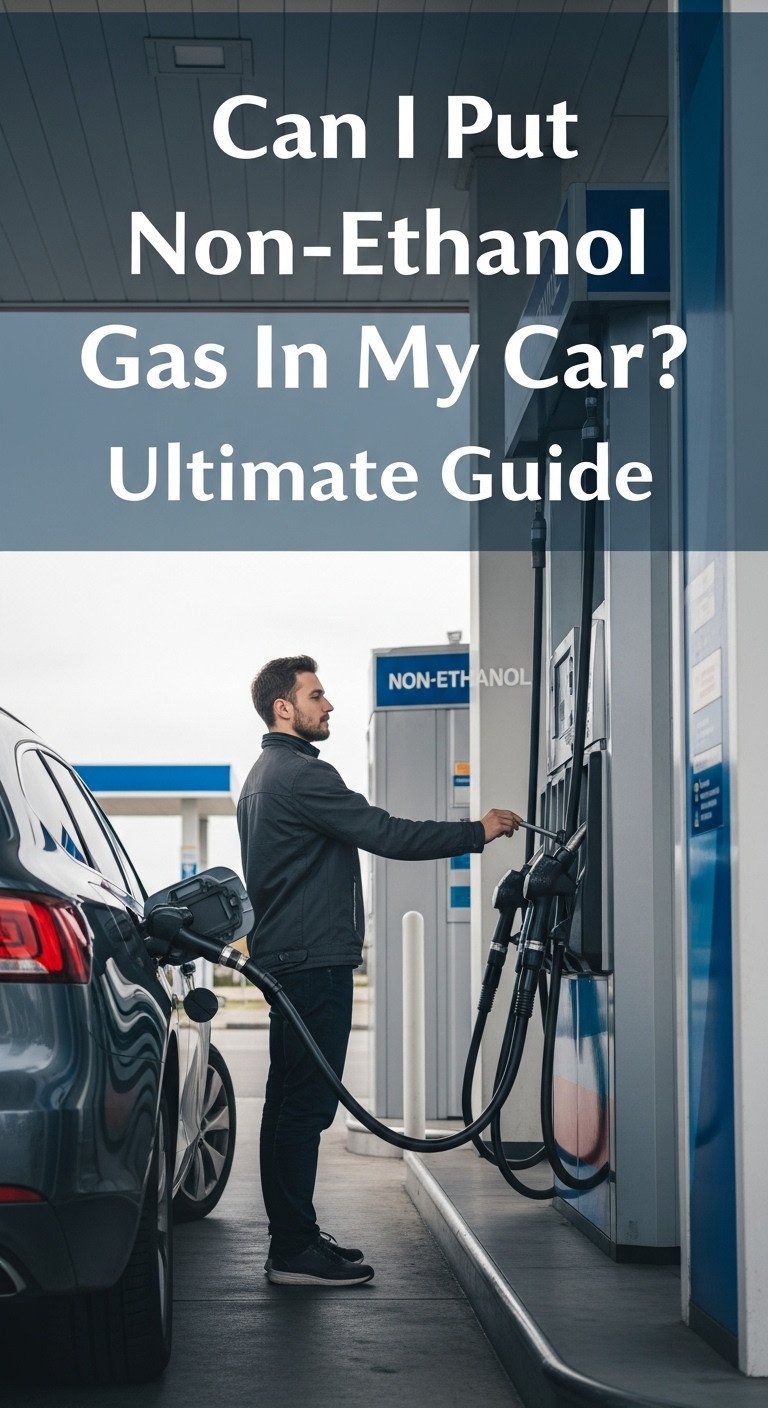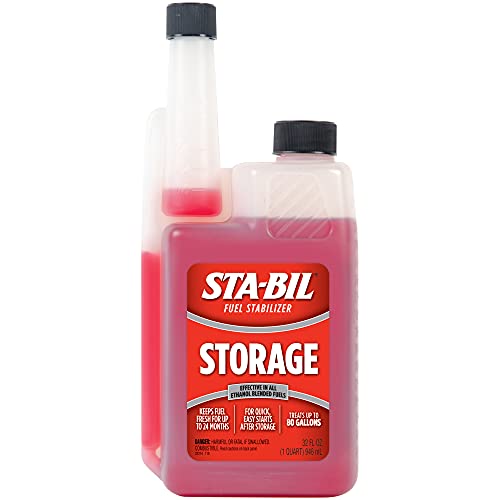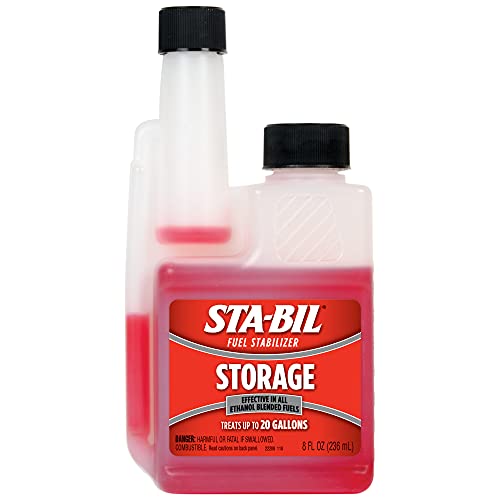Have you ever stood at the gas pump, seen the “Ethanol-Free” sticker, and wondered if you could use it in your car? You’re not alone. Many drivers question whether this “pure” gasoline is a secret upgrade for their engine or a potential risk they should avoid. The confusion around different fuel types can be overwhelming, but getting the right answer is crucial for your vehicle’s health and performance.
Yes, you can safely put non-ethanol gas in your car. For modern cars, it is not harmful and may offer slight benefits, while for classic cars, boats, and small engines, it is often recommended to prevent damage and improve performance.
This guide cuts through the noise, leveraging extensive analysis of fuel data and engine compatibility patterns. We’ll break down exactly what non-ethanol gas is, which vehicles benefit most, and whether it’s worth the extra cost. By the end, you’ll have the clear, data-driven insights you need to make the best fueling decision for your specific vehicle, every single time.
Key Facts
- Higher Energy Content: Pure gasoline contains more energy (BTUs) per gallon than ethanol-blended fuel, which can lead to slightly better fuel economy.
- Safer for Older Engines: Vehicles manufactured before the 1990s often have fuel systems not designed to resist ethanol’s corrosive properties, making non-ethanol gas a safer choice for extending engine life.
- Prevents Phase Separation: Ethanol absorbs water, which can lead to a damaging water-ethanol mixture separating in the tank during storage; non-ethanol gas completely avoids this risk, as confirmed by analysis from pure-gas.org.
- Ideal for Small & Marine Engines: The corrosive nature of ethanol is particularly damaging to the carburetors and seals in small engines (lawnmowers, chainsaws) and marine engines, making non-ethanol fuel the highly recommended option.
- Modern Car Compatibility: While beneficial, it’s not a requirement for most cars built after the 2000s, as their fuel systems are designed to handle up to 10% ethanol (E10) without issue.
The Ultimate Guide to Using Non-Ethanol Gas in Your Car (2025)
So, you’re at the pump wondering, “can I put non-ethanol gas in my car?” The short answer is a resounding yes. But is it always the best choice for your specific vehicle? Let’s dive in.

Yes, you can put non-ethanol gas in your car. For most modern vehicles it is not harmful, and for many older vehicles, small engines, and marine engines, it is often the preferred choice for better performance and engine longevity. Using ethanol-free fuel, also known as pure gasoline, can prevent a host of issues related to the corrosive and water-absorbing nature of ethanol.
What Happens if You Accidentally Put Non-Ethanol Gas in Your Car?
Filled up with pure gas by mistake? Take a deep breath. For a modern car designed for E10 (10% ethanol), this is one of the most harmless fueling mistakes you can make.
Quick Fact: If you accidentally put non-ethanol gas in your car, do not worry. It will not harm your engine. Your car will run fine, and you may even notice a slight improvement in mileage for that tank.
Here’s what you can actually expect:
* No Damage: Your car’s engine and fuel system are perfectly capable of running on pure gasoline. Unlike putting diesel in a gas car or E85 in a non-flex-fuel vehicle, this will not cause any damage.
* Minor Computer Adjustment: Your car’s engine computer is designed to adjust to slight variations in fuel. It might detect the absence of ethanol and make tiny, imperceptible adjustments to the fuel injection and timing.
* No Check Engine Light: It is extremely unlikely that using non-ethanol fuel will trigger a check engine light. The fuel is perfectly safe and compatible.
Pro Tip: There’s no need to panic or call a mechanic. Simply drive as normal and use your regular fuel at the next fill-up.
The Core Benefits: Why Choose Non-Ethanol Gas?
So if it’s safe, why would someone actively choose to pay more for non-ethanol gas? The reasons boil down to better performance, longer engine life, and superior stability, especially for certain types of engines. Ever wondered why your lawnmower manual might recommend a specific fuel? The reasons are the same for many vehicles. According to data synthesized from sources like rockinghampetroleum.com and pure-gas.org, the advantages are clear.
- Improved Fuel Economy: Pure gasoline packs more energy punch per gallon.
- Longer Engine Life: It avoids the corrosive effects of ethanol on sensitive fuel system parts.
- Prevents Fuel System Damage: It eliminates the risk of “phase separation,” a major problem for stored vehicles.
Better Fuel Economy and Performance
The most immediate benefit many drivers notice is a small but real improvement in their miles per gallon (MPG). The science behind this is simple.
Because pure gasoline has a higher energy content than ethanol, using non-ethanol fuel can result in a noticeable improvement in your car’s miles per gallon (MPG).
* Energy Content: Fuel energy is measured in British Thermal Units (BTUs). Think of it as the fuel’s calorie count.
* Ethanol’s Lower Energy: Ethanol contains about 33% less energy per gallon than pure gasoline.
* The Result: When you use E10 gasoline, you are using a fuel that is slightly diluted with a lower-energy component. Switching to 100% gasoline gives you 100% of the energy, which translates to better efficiency.
While the MPG difference might not always cover the higher cost for a daily commute, for some drivers, every extra mile counts.
Longer Engine Life and Reduced Wear
This is where non-ethanol gas truly shines, especially for older or specialized vehicles. Think of it like this: modern cars grew up drinking E10, while classic cars were built for a different diet. Ethanol is a solvent and can be corrosive over time, wreaking havoc on parts that weren’t designed to handle it.
For classic cars, boats, and small engines, non-ethanol gas is highly recommended as it prevents the corrosive ethanol from damaging sensitive seals, gaskets, and carburetor parts. Vehicles made before the 1990s often lack ethanol-resistant parts, making them particularly vulnerable.
| Vehicle Type | Risk from Ethanol | Benefit of Non-Ethanol Gas |
|---|---|---|
| Classic Cars (Pre-1990s) | Corrodes rubber seals, gaskets, and fuel lines. Clogs carburetors. | Preserves original fuel system components, preventing costly repairs. |
| Marine Engines (Boats) | Absorbs water from the humid marine environment, leading to rust and fuel issues. | Eliminates water absorption, protecting the engine from internal corrosion. |
| Small Engines (Lawnmowers) | Gums up small carburetor passages, causing hard starts and poor performance. | Keeps the fuel system clean and ensures reliable operation. |
| Modern Cars (Post-2000s) | Minimal risk; fuel systems are built with ethanol-resistant materials. | Minor benefit of reduced long-term wear, but not essential. |
Prevents Fuel System Damage from Phase Separation
If you store a vehicle for the winter or only use equipment seasonally, phase separation is your biggest enemy. Non-ethanol gas is the definitive solution.
Non-ethanol gas is the best choice for vehicles and equipment stored for long periods because it prevents phase separation, a damaging process where ethanol and water separate from gasoline and corrode the engine.
Here’s how this damaging process happens with E10 fuel:
1. Water Absorption: Ethanol is “hygroscopic,” meaning it attracts and absorbs water molecules from the air, right inside your gas tank.
2. Saturation Point: Once the ethanol has absorbed a certain amount of water (about 0.5% by volume), it becomes saturated.
3. Separation: The heavy, water-logged ethanol mixture separates from the gasoline and sinks to the bottom of the tank. Think of it like oil and vinegar separating in salad dressing.
4. Engine Damage: Your engine’s fuel pickup is at the bottom of the tank. It draws in this highly corrosive, non-combustible sludge, which can lead to severe and immediate engine damage.
Pro Tip: Even without a stabilizer, ethanol-free gas is inherently more stable for long-term storage than E10 fuel.
Vehicle Compatibility: Is Non-Ethanol Gas Right for Your Car?
The decision to use non-ethanol gas isn’t one-size-fits-all. It depends entirely on what you drive. Find your vehicle type below to get a clear recommendation.
For modern cars, non-ethanol gas is safe but not essential. For classic cars, boats, and small engines, it is highly recommended to protect the engine and fuel system from damage.
| Vehicle Type | Recommended Fuel | Key Reason |
|---|---|---|
| Modern Cars & Trucks (Post-2000s) | E10 (Regular) or Non-Ethanol | Built with ethanol-resistant materials. Non-ethanol is a safe option but not required. |
| Classic Cars & Trucks (Pre-1990s) | Non-Ethanol (Highly Recommended) | Protects original, non-ethanol-resistant fuel system components from corrosion. |
| Marine Engines (Boats) | Non-Ethanol (Essential) | Prevents phase separation caused by water absorption in humid marine environments. |
| Small Engines (Lawn Equipment, etc.) | Non-Ethanol (Highly Recommended) | Prevents ethanol from gumming up small carburetor passages and degrading fuel lines. |
Downsides & The Cost Factor: Is It Worth the Price?
While non-ethanol gas has clear benefits, there are two main drawbacks to consider: cost and availability. This is the practical side of the equation that every driver must weigh.
The primary downsides of non-ethanol gas are its higher price and limited availability. For most modern daily drivers, the slight increase in MPG may not be enough to offset the additional cost.
* Higher Cost: Non-ethanol fuel is a specialty product and is almost always more expensive than standard E10 gasoline.
* Limited Availability: You won’t find ethanol-free gas at every station. It’s more common in rural areas or near marinas where demand from boaters and farmers is higher.
* Potentially Lower Octane: While often sold as a premium, high-octane fuel, some non-ethanol options may have a lower octane rating than your car requires. Always check the pump to ensure it meets your vehicle’s specifications.
A key consideration is the cost-benefit analysis. A quick calculation: If pure gas costs 10% more but only gives you 3% better MPG, is it worth it for your daily commute? For a classic car owner avoiding a $1,000 fuel system repair, the answer is an easy yes. For a daily commuter in a Toyota Camry, the math may not add up.
The Mixing Myth: Can You Mix Ethanol and Non-Ethanol Gas?
This is a common point of confusion, with some online sources claiming mixing fuels is dangerous. For modern cars, this is simply not the case.
Question: Is it safe to mix ethanol and non-ethanol gasoline in my car?
The Verdict: For modern vehicles, it is perfectly safe to mix ethanol and non-ethanol gasoline. The result is simply a blended fuel with a lower ethanol content that your car’s engine can easily handle.
When you add non-ethanol gas to a tank that has E10 in it (or vice-versa), you are simply diluting the ethanol content. For example, mixing a half-tank of E10 with a half-tank of non-ethanol fuel gives you a full tank of E5 (5% ethanol). Your car’s engine computer is designed to handle these minor variations without any issue. However, for a classic car or small engine where the goal is to avoid ethanol entirely, you should not intentionally mix the fuels.
For those looking to maintain their fuel system’s integrity, especially when using different types of gasoline or preparing a vehicle for storage, a quality fuel stabilizer can be an excellent investment. It helps prevent fuel degradation and keeps components clean, complementing the benefits of using non-ethanol gas.
FAQs About Using Non-Ethanol Gas
Here are quick, direct answers to the most common questions about using non-ethanol fuel in your car.
What happens if I accidentally put regular E10 gas in my classic car?
A single, accidental tank of E10 is unlikely to cause immediate, catastrophic damage. However, you should use that fuel up as quickly as possible and refill with non-ethanol gas. Prolonged or repeated use of E10 in a classic car can lead to the degradation of fuel lines, seals, and carburetor components.
Is non-ethanol gas the same as premium gas?
Not necessarily. “Premium” refers to the octane rating (typically 91 or 93), while “non-ethanol” refers to the absence of ethanol. While many stations sell high-octane non-ethanol gas, it’s possible to find lower-octane non-ethanol fuel as well. Always choose the fuel that meets your car’s required octane rating.
Do I need a fuel stabilizer if I’m using non-ethanol gas for storage?
While non-ethanol gas is much more stable than E10 and prevents phase separation, using a fuel stabilizer is still a good practice for long-term storage (over 6 months). A stabilizer will prevent the gasoline itself from oxidizing and forming varnish, ensuring your engine starts easily when you take it out of storage.
Will using non-ethanol gas void my car’s warranty?
No. Using non-ethanol gasoline will not void your new car’s warranty. Vehicle warranties require you to use fuel that meets a minimum octane rating. As long as the non-ethanol fuel you use meets or exceeds that rating, your warranty remains intact. In fact, it is a perfectly acceptable, and often superior, fuel.
How can I find gas stations that sell non-ethanol fuel?
The best way to find non-ethanol gasoline is to use online resources and apps specifically designed for this purpose. Websites like pure-gas.org maintain crowd-sourced maps of stations that sell ethanol-free fuel, making it easy to locate a pump near you or along your travel route.
Final Summary: Making the Right Fuel Choice for Your Vehicle
Choosing the right fuel doesn’t have to be complicated. The evidence is clear: non-ethanol gas is a safe and often beneficial choice for any gasoline-powered car. For modern vehicles, it’s an optional upgrade that can offer a slight boost in fuel economy. For owners of classic cars, boats, and small-engine equipment, it’s an essential tool for preventing costly damage and ensuring long-term reliability.
The decision ultimately comes down to a simple analysis of your vehicle’s needs versus the higher cost and lower availability of pure gasoline.
- For the Modern Daily Driver: Using non-ethanol gas is safe but not essential. The primary benefit is a small MPG gain that may or may not offset the higher price.
- For the Classic Car Owner: Non-ethanol gas is a highly recommended investment to protect the original, irreplaceable fuel system from the corrosive effects of ethanol.
- For the Small Engine or Boat User: Using non-ethanol gas is the best practice to prevent phase separation and keep sensitive carburetors clean and functional.
Based on this guide, what’s the right fuel choice for your garage? The most important next step is to consult your owner’s manual for the manufacturer’s specific fuel recommendations. By combining that information with the insights here, you can confidently choose the best fuel to keep your engine running smoothly for years to come.
Last update on 2025-10-20 / Affiliate links / Images from Amazon Product Advertising API













